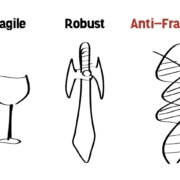Shoulder Injury Physio
Physiotherapy is an effective approach for treating shoulder injuries and pain, focusing on improving strength, flexibility, and range of motion. Below are key physiotherapy methods and exercises tailored for shoulder rehabilitation:
Key Physiotherapy Techniques
- Manual Therapy; Techniques like massages and joint mobilization help improve shoulder mobility and reduce stiffness
- Stretching Exercises: Essential for restoring flexibility and range of motion. Examples include the crossover arm stretch and doorway stretch Strengthening Exercises:
- Target muscles like the rotator cuff, deltoids, trapezius, rhomboids, and biceps to stabilize the shoulder joint and prevent further injury
Recommended Physiotherapy Exercises
Stretching
- Pendulum Exercise: Let your injured arm dangle while swaying your hips to create circular arm motions. This loosens the shoulder capsule and improves flexibility.
- Crossover Arm Stretch: Bring one arm across your chest and hold it with the other hand to maintain or improve flexibility
Strengthening
- Shoulder Rows: Use resistance bands to activate stabilizing muscles in the back (trapezius and rhomboids), which support the shoulder joint
- External/Internal Rotations: Use light resistance or body weight to strengthen rotator cuff muscles while maintaining proper form
- Scapular Retraction/Protraction: Focuses on strengthening the muscles around the scapula for better shoulder stability
Functional Movements
- Supported Shoulder Rotation: Use a stick or cane to assist in gentle outward rotation of the shoulder, ensuring no pain during movement
- Active Shoulder Abduction: Slowly raise your arm to the side without shrugging your shoulder to improve mobilit
General Guidelines
- Always warm up with 5–10 minutes of low-impact activity before exercises.
- Perform exercises under professional supervision, especially after surgery or severe injuries.
- Avoid any exercise that causes pain and consult your physiotherapist if discomfort persists.
- A typical rehabilitation program lasts 4–6 weeks but may vary based on individual recovery goals




